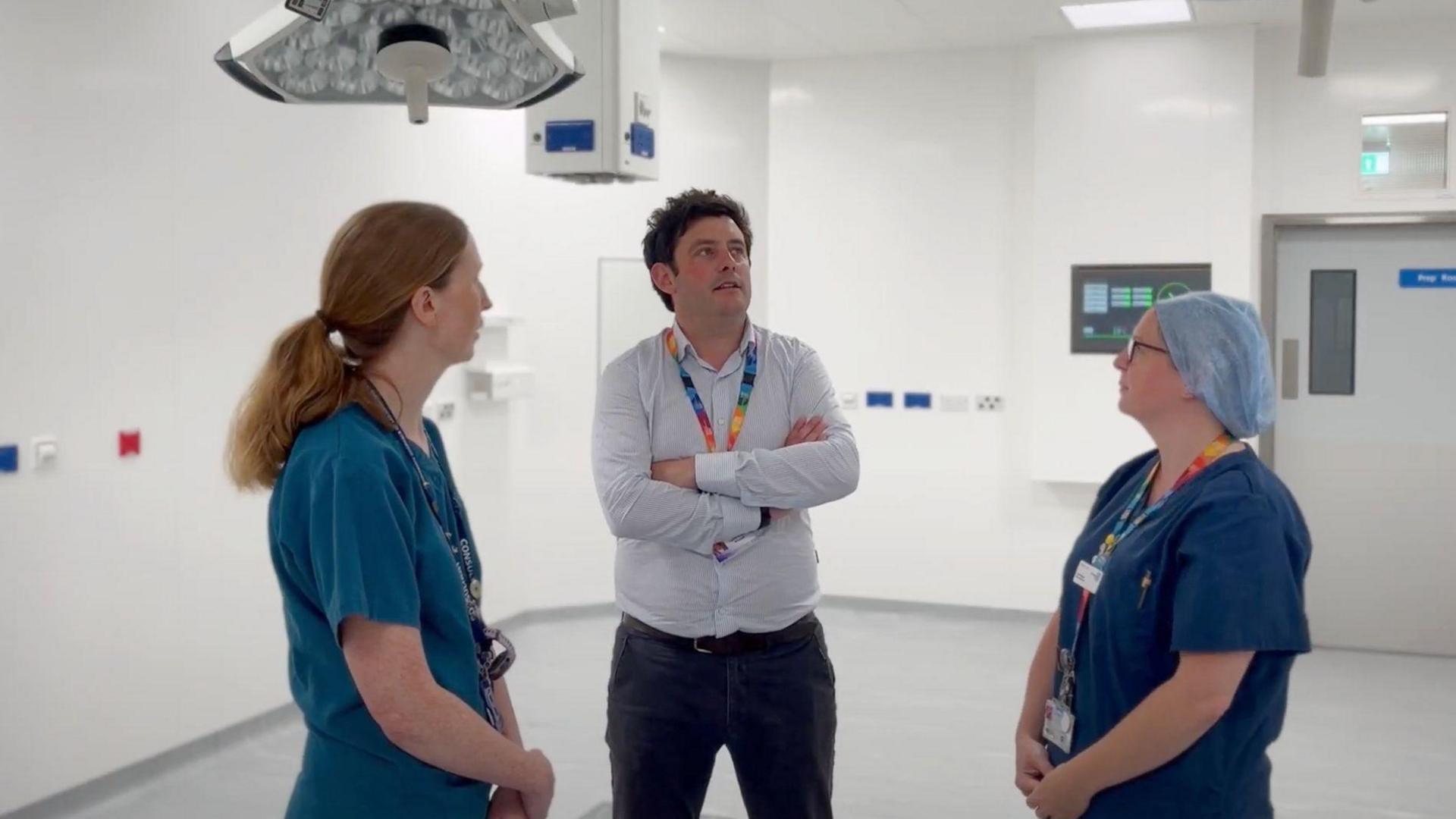Award for midwife who saved premature baby's life

Midwife Emma Robinson has been described as a "superwoman" for her actions which saved baby Maya-Jay's life
- Published
A midwife has been honoured after saving the life of a premature baby who had sepsis.
Maya-Jay was born four weeks prematurely by emergency Caesarean section at Leicester Royal Infirmary (LRI) and weighed just 4lb 12oz (2.15kg).
Midwife Emma Robinson noticed the baby's colour had become "dusky" before raising the alarm, meaning Maya-Jay received immediate treatment.
The baby's mother, Emily Wren, says her now 17-month-old daughter is "thriving" and nominated Ms Robinson for the Patient Choice award at the University Hospitals of Leicester (UHL) NHS Trust Recognition Awards 2024, which she won.
The awards, which took place at the Athena in Leicester on 4 October, aim to celebrate remarkable achievements and dedication of individuals and teams at the trust.
Although Maya-Jay initially seemed healthy, the trust praised Ms Robinson's decisiveness, which helped to identify what was later diagnosed as sepsis in the baby.
'My superwoman'
Ms Wren, from Hinckley in Leicestershire, said: "I'm so unbelievably grateful for Emma, her fast reactions, and the care she provided at such speed for my daughter.
"It was Emma who very quickly noticed her colour. She raised the alarm, and the doctors were there instantly to care for Maya-Jay.
"These incredible people suddenly sprang into action, all because Emma was there and acted so fast."
Maya-Jay and her family stayed at the LRI for a week.
Ms Wren added: "[Maya-Jay] has grown from that little dot into a gorgeous little terror, but without Emma's ability to provide the care that she did, I might not have her with me today.
"I am over the moon that Emma has won this award, as it is recognition that she deserves.
"She is my superwoman."
What are the symptoms of sepsis?
Sepsis is a life-threatening condition that develops when the body's immune system overreacts to an infection and starts attacking its own tissues and organs.
If sepsis is not treated early, it can turn into septic shock and cause organs to fail.
Symptoms in adults and older children can include, external:
Acting confused, slurred speech or not making sense
Blue, grey, pale or blotchy skin, lips or tongue – on brown or black skin, this may be easier to see on the palms of the hands or soles of the feet
A rash that does not fade when you roll a glass over it, the same as meningitis
Difficulty breathing, breathlessness or breathing very fast
Symptoms in a baby or young child may include:
Blue, grey, pale or blotchy skin, lips or tongue – on brown or black skin, this may be easier to see on the palms of the hands or soles of the feet
A rash that does not fade when you roll a glass over it, the same as meningitis
Difficulty breathing, breathlessness or breathing very fast
A weak, high-pitched cry that's not like their normal cry
Not responding like they normally do, or not interested in feeding or normal activities
Being sleepier than normal or difficult to wake
Source: NHS
Get in touch
Tell us which stories we should cover in Leicester
Follow BBC Leicester on Facebook, external, on X, external, or on Instagram, external. Send your story ideas to eastmidsnews@bbc.co.uk, external or via WhatsApp, external on 0808 100 2210.
- Published11 October 2024

- Published17 September 2024

- Published29 May 2023
